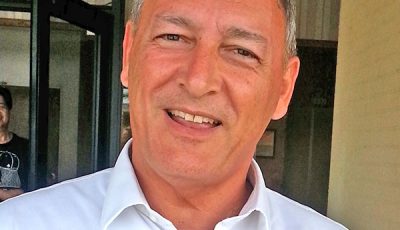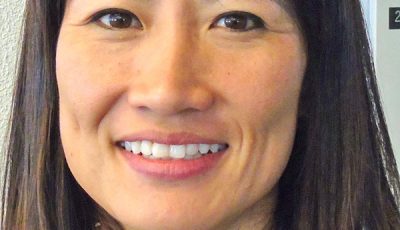2 lawyers’ performance in case found not deficient
The federal court finds that that a notary public’s two former counsel’s performance of their professional obligations in plea negotiations and at the change-of-plea hearing was not deficient.
In a written decision denying Liang Li’s motion to allow him to withdraw his guilty plea, U.S. District Court for the NMI Chief Judge Ramona V. Manglona determined that Li’s former counsel—Rene Holmes and Mark Scoggins—did not overbear the defendant’s will and forced him to plead guilty.
“It was no secret that this guilty plea was a bitter pill for defendant to swallow,” said Manglona, adding that she acknowledged it immediately after Li admitted he was guilty.
At the change of plea hearing, the judge stated, “I know it’s difficult, but I see the reasons.”
On Jan. 8, 2018, Li notarized a statement of a father’s consent to a U.S. passport application for his child under the age of 16. Li swore under oath that he had witnessed the father sign and had verified the father’s identification.
Because of errors in how the form was filled out, the passport office rejected it. On Jan. 10, the mother returned to Li to notarize a corrected statement of consent.
Unfortunately, the child’s father had already flown back home to China. Even so, Li, in violation of the oath printed on the form, notarized the document and affirmed that the father had signed it in his presence and shown identification, according to court documents.
Li was charged with aiding and abetting the lie in a passport application—a felony. A week before trial, he signed a plea agreement with the U.S. government to change his plea from not guilty to guilty. The change-of-plea hearing was held last April 3, in which Li pleaded guilty to lying in a passport application.
On Aug. 8, with his new counsel, Janet H. King, Li filed a motion, asking the court to allow him to withdraw his guilty plea.
Li alleged that his former lawyers—Holmes and Scoggins—pressured him to take the plea by giving him less than a day to consider it, telling him he had no chance of winning if he went to trial, and threatening him with prison time if did not accept the offer. Then-assistant U.S. attorney James Benedetto described Li’s allegations as false.
Manglona denied Li’s motion and sentenced him last Friday to two years of probation, with six months to be served in home detention.
In the written decision denying Li’s motion to allow him to withdraw his guilty plea, Manglona said that Holmes and Scoggins had worked the case and secured a much improved plea agreement—a recommendation of a sentence of probation and avoiding jail time altogether.
Manglona noted that uncontradicted testimony at the motion hearing, supported by billing records, was that on April 2 Li’s previous counsel spent more than six hours on the case, including meeting with Li, and that Scoggins met with Li again the next morning.
The judge pointed out that Li himself testified that Holmes read the plea agreement to him page by page.
Manglona said in a message to AskDOJ, Li acknowledged that it was the prosecutor who forced the issue by not reducing or dismissing the charges and “rushing me to sign the plea agreement instead.”
Manglona said former counsel properly and responsibly urged Li to recognize that by rejecting the no-prison offer, he was likely to end up with a conviction after trial and a sentence that includes significant prison time.
The judge said Li complains that his former counsel turned a deaf ear to his reservations about pleading guilty when he did not feel like a felon.
Manglona said Holmes’ conduct at the change-of-plea hearing, however, belies that complaint.
Manglona said when the prosecutor, reciting the factual basis, told the court that the child’s father had not signed the consent form in Li’s presence either on Jan. 8 or on Jan. 10, Holmes corrected that statement.
Holmes made it clear that the father had in fact appeared before Li and signed in his presence on Jan. 8; that on Jan. 10 Li was told the signature on the new form was the father’s; and that Li was attempting to correct an error.
Manglona said the prosecutor confirmed that “the government would agree with everything that Ms. Holmes said.”
Manglona said that Li also alleges that Scoggins told him that lying on a passport application is a strict liability crime, when in fact it is not.
The judge said what Scoggins may have been trying to get across to Li was that he could be guilty as charged even if he did not have an evil motive, so long as he knew that the statement was false and the purpose of the application was to secure a passport.
Manglona said Li’s more serious allegation is that his former counsel scared him into pleading guilty by conjuring the nightmare of sexual assault in prison.
On the stand, Holmes and Scoggins vigorously denied they had made such a threat or would ever so threaten a client. Manglona said she finds the testimony of Holmes and Scoggins to be credible.
“Former counsel would have had no motive to put their bar license on the line to get a client to accept a plea offer,” Manglona said.

























